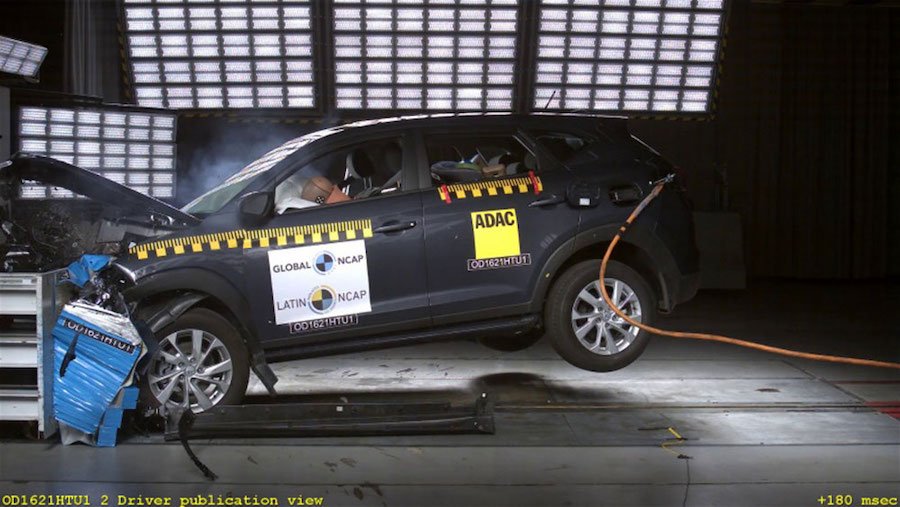Hyundai Tucson Crashes Its Way To Zero-Star Rating In Latin NCAP

The Hyundai Tucson got an abysmal zero-star rating in a recent crash safety test by the Latin NCAP. Now, before you sharpen your pitchforks, let it be known that the compact crossover tested by the NCAP for Latin America and the Caribbean region was the older model and not the new 2022 Hyundai Tucson that you see in the gallery below.
If you're wondering why was that so, Latin NCAP has an explanation:
Latin NCAP purchased the unit tested in February 2021 as Hyundai’s official representatives in 3 relevant countries confirmed that the new Tucson for Latin America was at least 2 years away. Things developed differently and the new Tucson came in to Latin NCAP during 2021.
However, there's still a good reason why this test matters – not only in Latin America and for some parts of the world. As pointed out by the Latin NCAP, there are still a number of markets that sell the outgoing Tucson; you can even buy one 'brand new' in some. The latter's the case in countries like the Philippines, which still sells the old Tucson... officially.
Latin NCAP also noted Hyundai's alleged delay of the results. Starting from 2020, all cars are tested for passive pedestrian safety, which meant that the front of the car is crashed repeatedly. That said, there's a need to replace frontal parts with new ones, ergo, a huge number of spare parts are needed.
Latin NCAP said that Hyundai took over seven months to replace the parts, unlike all other vehicles tested for passive pedestrian safety by the agency. Here's a likely explanation, coming from Latin NCAP:
There might be two potential reasons for this delay, one might be an active action from the car manufacturer to delay the results by delaying parts, and a second reason where simply the spare parts system of Hyundai is inefficient, slow and would keep a consumer waiting months to get an original spare part. Both potential scenarios are not good for consumers.
The Tucson that Latin NCAP tested came standard with two front airbags only, plus it doesn't come standard with electronic stability control or any other relevant vehicle technology. It scored well in adult protection for frontal and side impacts, as well as in whiplash protection. However, the lack of side airbags limited the car to get better scores.
Child occupant protection performance was poor because of two things: only a lap belt is available in the center rear seat and Hyundai declined to select Child Restraint Systems (CRS) for the tests. Pedestrian protection was overall average, but scored poor on upper leg protection and low on head protection. The lack of autonomous emergency braking, which can mitigate pedestrian accidents, also didn't help the case.
Latin NCAP noted that it offered the Korean automaker to test the new Hyundai Tucson but it declined.
